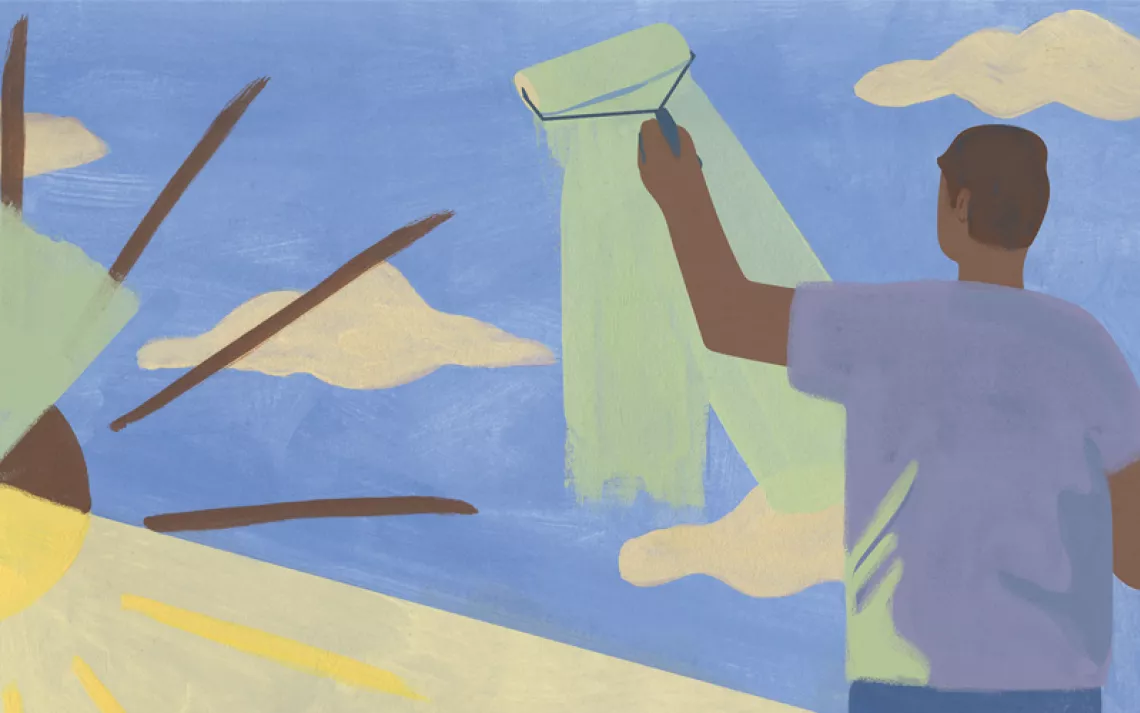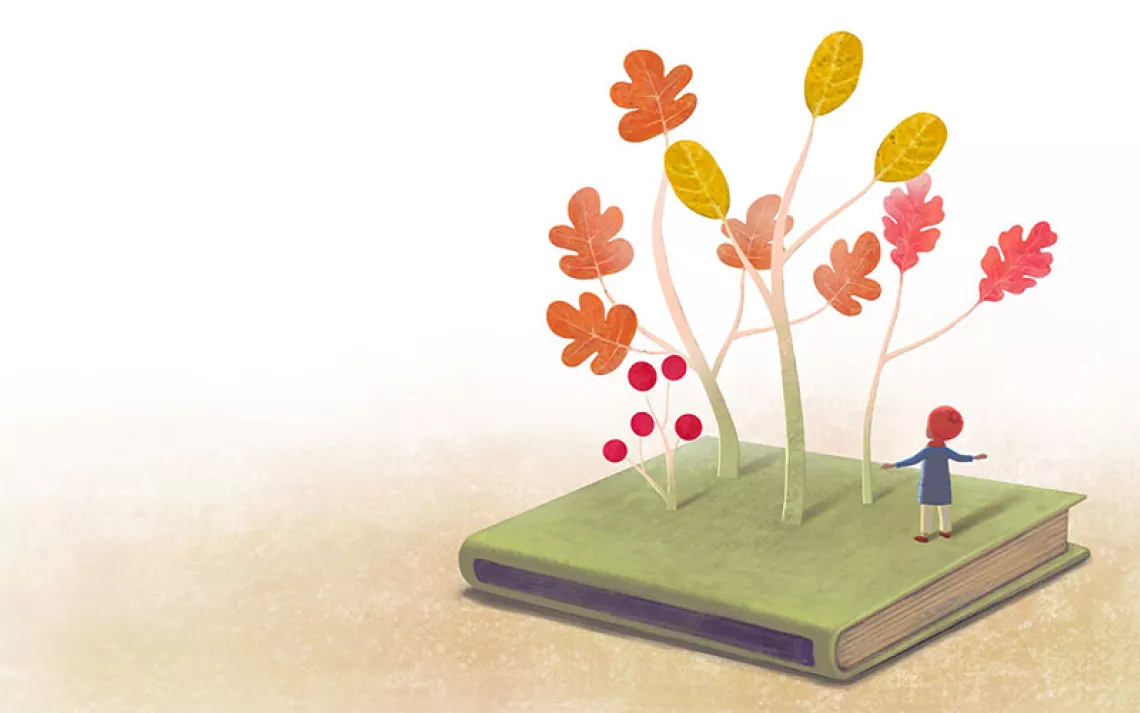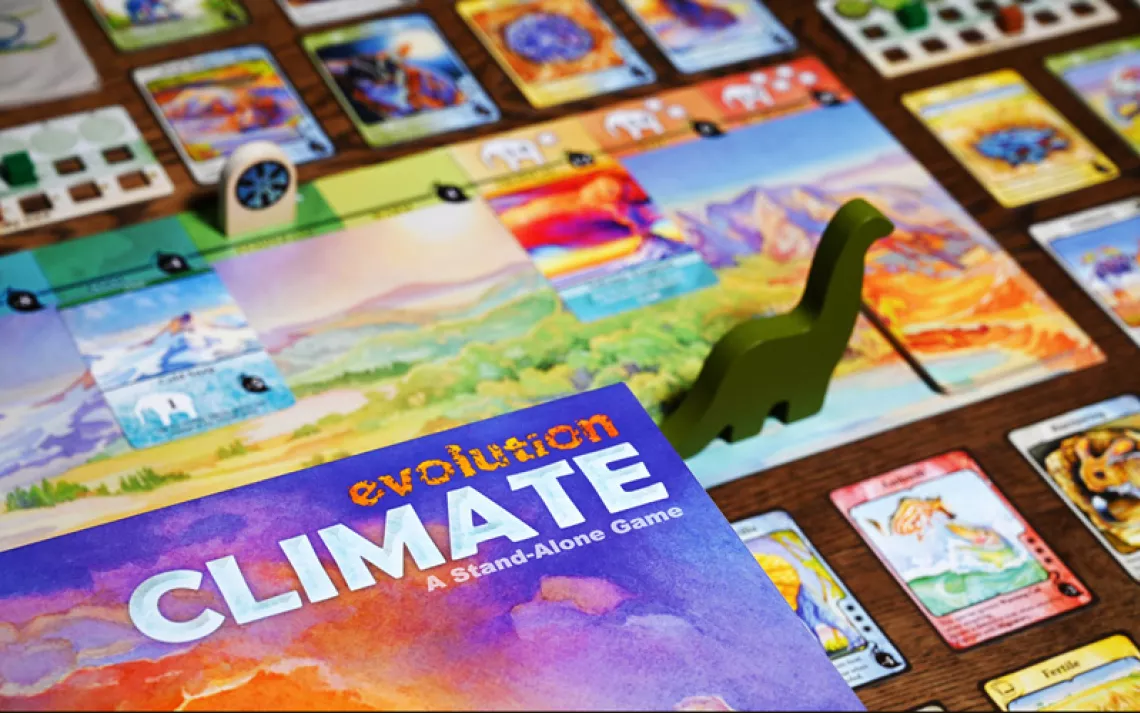Free Mobile Game Helps Kids Fight Climate Change
Nonprofit Cool the Earth releases the environmental app for Earth Day

All images courtesy of Jenny Jedeikin/Cool the Earth
The iPad screen shows a polar bear pacing on a shrinking iceberg, but the kids aren’t watching another depressing documentary. They’re playing the free mobile game just released by the nonprofit Cool the Earth. And the bear isn’t just any endangered species but Koda, a loveable furball that kids can feed, bathe, and even accessorize with eclectic gear like a Mohawk hairdo or coconut bra.
What’s the tie-in to looming climate catastrophe? In order to take proper care of Koda and advance to new levels in the game, players need to earn coins, which they can do by extinguishing carbon clouds or fishing trash out of the ocean. But they also need to complete real-world missions, like shutting off the faucet when brushing their teeth, saving leftover food, and turning off lights when they leave a room. To this end the app includes a built-in delay mechanism to prevent players from rapidly clicking through the list of actions. And past level 10, parents have to jump into the game too, verifying that their children have completed various tasks.

Sign up to receive Sierra News & Views
Get articles like this one sent directly to your inbox weekly.
With this action you affirm you want to receive Sierra Club communications and may vote on policy designated by the Sierra Club Board.
“This weaving in and out of the app world and the real world is innovative,” says Cool the Earth founder Carleen Cullen. “It took Apple a while to go for it because they'd never seen anything like it.”
![]()
For the past eight years, Cool the Earth has reached kids mainly through their elementary schools. It offers a free kit that includes instructions for a school assembly on climate change, complete with polar bear costumes, plus action coupon books that kids can take home and fill out. The nonprofit estimates they’ve reached over 200,000 kids who have completed over 300,000 carbon-reducing actions. With the new app, which officially launches today, any kid can participate anytime, anywhere. “We worked hard to make sure the actions are low or no cost, something all families in the U.S. can do, and even internationally,” Cullen says. “Three of our first few downloads were in countries in the Middle East.”
But isn’t access to the technology itself a limiting factor? Apparently not. “Two years ago, 52 percent of kids in the U.S. under the age of eight had access to tablets and smartphones in their homes,” Cullen says. “Now 75 percent do. The numbers only get higher as kids get older.”
Cullen acknowledges that the small steps promoted by the game don’t amount to much on an individual basis. But if adapted on a large scale, they add up to significant carbon reductions.
And inevitably, when you reach kids, you reach their parents. “Your friend can’t come into your house and tell you to take a shorter shower. But your kid can.”
 The Magazine of The Sierra Club
The Magazine of The Sierra Club



